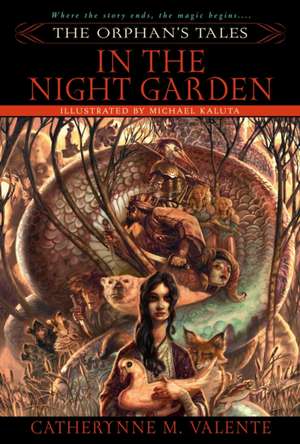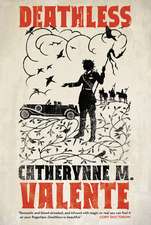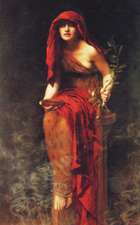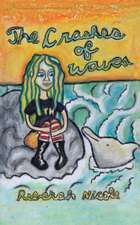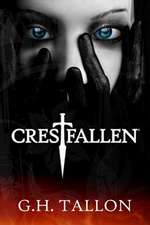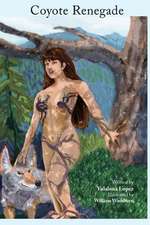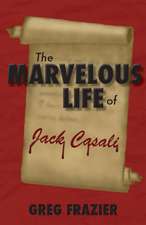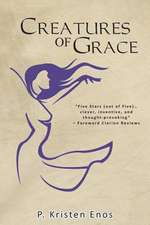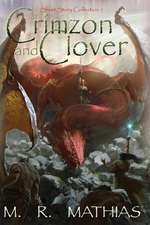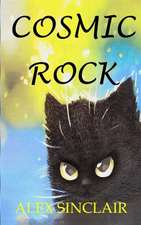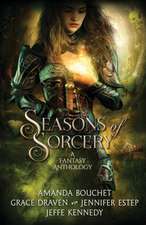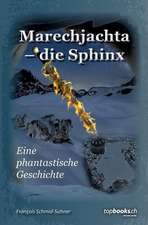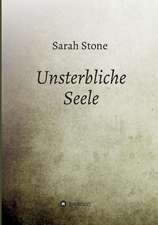In the Night Garden: Orphan's Tales, cartea 01
Autor Catherynne M. Valenteen Limba Engleză Paperback – 30 sep 2006
Every once in a great while a book comes along that reminds us of the magic spell that stories can
cast over us–to dazzle, entertain, and enlighten. Welcome to the Arabian Nights for our time–a lush and fantastical epic guaranteed to spirit you away from the very first page….
Secreted away in a garden, a lonely girl spins stories to warm a curious prince: peculiar feats and unspeakable fates that loop through each other and back again to meet in the tapestry of her voice. Inked on her eyelids, each twisting, tattooed tale is a piece in the puzzle of the girl’s own hidden history. And what tales she tells! Tales of shape-shifting witches and wild horsewomen, heron kings and beast princesses, snake gods, dog monks, and living stars–each story more strange and fantastic than the one that came before. From ill-tempered “mermaid” to fastidious Beast, nothing is ever quite what it seems in these ever-shifting tales–even, and especially, their teller. Adorned with illustrations by the legendary Michael Kaluta, Valente’s enchanting lyrical fantasy offers a breathtaking reinvention of the untold myths and dark fairy tales that shape our dreams. And just when you think you’ve come to the end, you realize the adventure has only begun….
Preț: 132.33 lei
Nou
Puncte Express: 198
Preț estimativ în valută:
25.32€ • 26.51$ • 20.95£
25.32€ • 26.51$ • 20.95£
Carte disponibilă
Livrare economică 17-31 martie
Preluare comenzi: 021 569.72.76
Specificații
ISBN-13: 9780553384031
ISBN-10: 0553384031
Pagini: 482
Ilustrații: ILLUSTRATIONS--DETAILS TK
Dimensiuni: 163 x 233 x 24 mm
Greutate: 0.69 kg
Editura: Spectra Books
Seria Orphan's Tales
ISBN-10: 0553384031
Pagini: 482
Ilustrații: ILLUSTRATIONS--DETAILS TK
Dimensiuni: 163 x 233 x 24 mm
Greutate: 0.69 kg
Editura: Spectra Books
Seria Orphan's Tales
Notă biografică
Catherynne M. Valente was born in the Pacific Northwest, grew up in California, and now lives in Ohio with her two dogs.
Extras
The Tale of the Prince and the Goose
Now the prince stole into the night, the shadows wrapping around him like slippery river eels, and his footfalls were black and soundless on the pine needles. He journeyed through the Forest, stars flooding overhead as though they had burst through some gilded dam, having no particular plan except to get as far from the Palace as possible before the sun rose up and his father's hounds were set on his scent. The trees made a roof of many tiles over his head, a scented mosaic studded with blue clouds. For the first time in his young life, the Prince felt a fierce kind of happiness, rimmed with light.
As dawn swept up behind him like a clever thief, he rested against the trunk of a great baobab, leaning his head against the knotted wood. He breakfasted on cheese and dried meat he had stolen from the kitchens. The salt of the meat was more delicious than anything he had ever tasted, and he slept for a few hours under the sky which bloomed in the colors of wisteria and lilies.
Traveling on, it was not long before he came to a little hut in a pleasant meadow with a thatched roof and a well-made wooden door, round with solid brass studs. The chimney smoked cheerily, smelling of sage and cedar. Milling around the house was a flock of gray-feathered geese, circling like cirrus clouds, ethereal and wild. They were very fine animals and beautiful, squawking and ruffling their feathers under the curling eaves of camphor and fresh straw.
Now the Prince was young and resourceful, but not very wise, and he had taken only a little food from the kitchens and a few apples from the orchards. He had assumed that he could forage easily, for the whole world must be as fertile as his father's lands, and all trees must be as full of jeweled fruit, all animals as docile and savory, all peasants agreeable and generous. It was beginning to be clear that this might not be the case, and his stomach growled noisily. He resolved to replenish his pack before he went further. There were, after all, so many geese, and certainly whatever warm and festive creatures dwelt in that fine hut, they would not even notice if one of the long-necked animals disappeared.
The Prince had been trained to hunt and sneak from his earliest childhood, and he crept silently on well-muscled thighs from his hiding place. He stole behind a great plow and waited among the high summer grasses, searching for the right moment, controlling his breathing and slowing his hammering heart. The midmorning sun was hot on his neck. His hair crawled with sweat, trickling down into his collar, but he did not move at all until, finally, one of the lovely geese wandered away from the pack, peering around the blade of the plow and fixing him with wide black eyes. Her gaze was very strange, endless and deep as the autumn moon, pupilless and knowing.
But swift as a sleek wolf, the Prince escaped her gaze. He caught her slender neck in his hand and snapped it, the sound no louder than a twig caught underfoot. He rose from the dry grass and moved back towards the tree line, but the geese had noticed that one of their number was missing, and sent up a great alarm, terrible and piercing.
The door of the hut flew open and out stomped a fearful woman, a flurry of streaming gray hair and glinting axe blade. Her face was wide and flat, covered with horrible and arcane markings, great black tattoos and scars cutting across her features so that it was impossible to tell if she had once been beautiful. She wore a wide leather belt studded with silver, two long knives glittering at her hips. She screamed horribly and the sound of it shook the cypresses and the oaks, vibrating in the air like a shattered flute.
"What have you done? What have you done? Awful, awful boy!—Villain, demon!" She screeched again, higher and shriller than any owl, and the geese joined her, keening and wailing. Their howls gouged at the air, at the rich red earth, a sound both monstrous and alien, full of inhuman, bottomless grief. It dug at his ears like claws.
Finally, the woman quieted and simply shook her great head, weeping. The Prince stood, stunned, more chagrined over his lack of stealth than her rage. She was, after all, only a woman, and it was only a bird. She was dwarfish and no longer young, and he knew he had nothing to fear from her. He clutched the bird's corpse behind his back, hoping his broad chest and arms would hide it.
"I have only just stumbled upon your house, Lady. I meant no offense." The wretched woman loosed her awful scream again, and her eyes grew hideously large. He had not noticed their yellowish cast before, but it was certainly there now, feral and sickly.
"You lie, you lie! You have killed my goose, my beautiful bird, my child! She was mine and you broke her neck! My darling, my child!" She broke into bitter weeping. The Prince could not understand. He drew the goose's body from behind his back to hold it out to the crone.
But in his fist he held not a bird, but a radiant young woman, small and delicate as a crane poised in the water, long black hair like a coiled serpent winding around his hand, for he clutched her at the root of the braided mane. She was clothed in diaphanous rags which barely covered her shimmering limbs. And her long, smooth neck was neatly broken.
The tattooed woman ran at him, swinging her axe like a scythe through wheat, and he dropped the girl's body with a horrible thump onto the grass. When she reached him, she stopped short and breathed hard into his face, stinking of rotted plums and dark, secret mosses. She lifted her axe and cut off two fingers on the Prince's left hand, licking the spray of blood from her cracked lips. He could not run, the blow was so sudden and complete, but only cry out and clutch his maimed hand. He knew if he bolted from her he would lose much more than a finger. He promised the crone a thousand thousand kingdoms, the treasures of a hundred dragons, babbling oaths like a child. But she would have none of it, and slowly moved her free hand to one of the long knives.
"You have killed my child, my only daughter."
She laid her ponderous axe on the damp earth and drew, with one long, sinuous sigh, the bright-bladed knife from its sheath—
The girl paused, and looked into her companion's eyes, which were like deep marshes at sunset.
"Don't stop!" he choked. "Tell me! Did she kill him then and there?"
"It is night, boy. You must go in to dinner and I must make my bed among the cedar boughs. Each to our own."
The boy gaped, grasping frantically for a reason to stay and hear the fate of the wounded Prince. Hurriedly, he murmured, "Wait, wait. I will go to dinner, and steal food for us like the brave Prince Leander, and creep out under cover of night like a hawk on the hunt, and stay the night with you, here under the stars, which are bright as crane feathers in the sun. Then you can finish the story." He looked at her with a hope whose fierceness was brighter than any torch now lit at court.
She was quiet for a moment, head bowed like a temple postulant.
Finally, she nodded, without looking up.
"Very well."
In the Garden
As the last harp strings of crimson sighed into the silent westward darkness, the boy returned, clutching a handkerchief filled to bursting. He clambered into the little thicket and proudly laid out their feast. The girl sat as she had when he left her, still as one of the calm profiles of the garden statues. Her strange quiet unnerved him, frightened him. He could not hold her dark gaze, her wide, almond-shaped eyes ringed about with their strange markings.
Instead, he glanced awkwardly at the steaming food. On the little square of silk lay a glistening roasted dove, fat peaches and cold pears, a half loaf of buttery bread covered in jam, broiled turnips and potatoes, a lump of hard cheese, and several sugared violets whisked away from the table garnish. He drew from his pocket a flask of pale watered wine, the great prize of his kitchen adventures.
The girl made no move, did not reach for the dove or the pears. Her crow-feather hair wafted into her face, borne by the warm breeze, and all at once she began to shudder and weep. The boy did not know where to look, did not wish to shame her by witnessing her tears. He fixed his eyes on the shivering boughs of a distant cypress tree, and waited. By and by, the sniffling ceased, and he turned back to her.
Of course, he understood that she had never eaten so well in her life, as she had never been welcome at the palace dinners—he imagined that she had lived on the fruits and nuts of the garden, foraging like a beggar. But he could not understand why plenty would make someone weep. His hands were soft and scented with rose oil, and his hair gleamed. He had known nothing but the court and the peculiar adoration it bestowed on beautiful youths. But he was a child of nobility, and would not embarrass her with displays of compassion.
Wordlessly, she tore a wing off the coppery dove and delicately mouthed the meat. With a small, ornate silver knife hidden in the folds of her plain shift she sliced a pear in two. As she extended one pale green half to the boy, he wondered vaguely how she had come upon such a handsome knife. Certainly he had nothing so fine, and yet her dress, such as it was, was threadbare and her fingernails dirty. A thread of fragrant juice ran down her chin, and for the first time, the girl smiled, and it was like the moonrise over a mountain stream, the light caught in a stag's pale antlers, clear water running under the night sky. When she spoke again, the boy leaned forward eagerly, shoved his thick, dark hair back from his face, bit into a ripe peach and stuffed a bit of cheese into his mouth, mechanically, without noticing the taste. Her large eyes slid shut as she spoke, so that her eyelids and their mosaic covering seemed to float like black lilies in the paleness of her face.
"The wild woman drew her long knife from her belt and held it for a moment, almost playfully, at the Prince's smooth neck, a sliver of breath before the fatal cut . . ."
The Tale of the Prince and the Goose, Continued
"Let me live, lady," he whispered, "I beg you. I shall stay here and be your servant; I will take the place of the bird-maiden and remain loyal to you for all of my days. I will be yours. I am young and strong. Please."
He did not know what moved him to make such an offer, or if he meant to keep his promise, true as law. But the words ripped from him as though the woman had put her fist into his throat and seized them for her own.
Her eyes blazed like clouds filled with a thousand tiny seeds of lightning. But they held now a calculating gleam, and indeed, in another instant the knife had vanished from the Prince's throat.
"Even if I agree it will not save you," she hissed, her voice like a great toad singing at dawn. "But I will tell you the tale of my daughter and how she became winged. Then, perhaps, you will see what it is you offer, and we shall discover whether or not you prefer death."
But she did not speak. Instead, she tore a long strip of mottled fur from the collar of her tunic and bandaged his hand. Her touch was practiced and much softer than he expected, almost, though not quite, tender. From a pouch at her waist she drew some withered leaves, among which he thought he could recognize bay and juniper. She pressed them into his ruined stumps. Tightening the poultice, she examined her work and judged it fair.
"First, I am not blind. I can see that you are young and strong, and there is no doubt I can use up your youth and vigor like well water. This is not the question. Can you listen? Can you learn? Can you keep silent? I wonder. I believe you are a spoiled brat with no ears at all."
The Prince bent his head, penitent. Already his hand had stopped its thick throbbing, and he said nothing, judging that nothing was the best shield he could fashion against her. The crone sat against a large stone and rolled a few musky leaves between her gnarled fingers . . .
The Witch's Tale
I came from the northern tribes, the steppe-women with their shaggy horses and snow-clotted braids. I'm sure you've heard stories–we were monsters, we were unnatural, we deserved what we got.
Among the unnatural monsters, I was more monstrous and more unnatural than the rest. They called me Knife. When I was young and my strength was taut as a bowstring, I was the best rider of all the young girls. I had many necklaces of jasper and wolf-tooth, three fine hunting knives, a strong bow that I could draw into the shape of the full moon, a quiver full of arrows fletched in hawk feathers, and a wildcat hide from my first kill. All around me were the wild, honey-colored steppes, the fat deer we hunted, and the sleek, brown, fragrant horses I loved. They ran like ripples in a mountain lake. I ran alongside them, and rode astride them, and I slept against their flanks.
I was happy, the sun was high. I had enough.
My sisters were all older than I, my brothers away fighting on the borders of our country, and so I was free, and feral, and my smile was often too like a snarl. One day Grandmother Bent-Bow, whom everyone called Grandmother but who was truly mine, and had the ugliest face I knew, like beaten bark, called me to her under the new moon. She told me that she had found a man for me to marry. I loved my grandmother very much, but I did not care to be married. I was a muscle-knotted mare; I needed no mount to slow me down. But Grandmother's word was the closest thing to law we had. Monsters, you know, cannot appreciate the niceties of commandments carved in stone.
Now the prince stole into the night, the shadows wrapping around him like slippery river eels, and his footfalls were black and soundless on the pine needles. He journeyed through the Forest, stars flooding overhead as though they had burst through some gilded dam, having no particular plan except to get as far from the Palace as possible before the sun rose up and his father's hounds were set on his scent. The trees made a roof of many tiles over his head, a scented mosaic studded with blue clouds. For the first time in his young life, the Prince felt a fierce kind of happiness, rimmed with light.
As dawn swept up behind him like a clever thief, he rested against the trunk of a great baobab, leaning his head against the knotted wood. He breakfasted on cheese and dried meat he had stolen from the kitchens. The salt of the meat was more delicious than anything he had ever tasted, and he slept for a few hours under the sky which bloomed in the colors of wisteria and lilies.
Traveling on, it was not long before he came to a little hut in a pleasant meadow with a thatched roof and a well-made wooden door, round with solid brass studs. The chimney smoked cheerily, smelling of sage and cedar. Milling around the house was a flock of gray-feathered geese, circling like cirrus clouds, ethereal and wild. They were very fine animals and beautiful, squawking and ruffling their feathers under the curling eaves of camphor and fresh straw.
Now the Prince was young and resourceful, but not very wise, and he had taken only a little food from the kitchens and a few apples from the orchards. He had assumed that he could forage easily, for the whole world must be as fertile as his father's lands, and all trees must be as full of jeweled fruit, all animals as docile and savory, all peasants agreeable and generous. It was beginning to be clear that this might not be the case, and his stomach growled noisily. He resolved to replenish his pack before he went further. There were, after all, so many geese, and certainly whatever warm and festive creatures dwelt in that fine hut, they would not even notice if one of the long-necked animals disappeared.
The Prince had been trained to hunt and sneak from his earliest childhood, and he crept silently on well-muscled thighs from his hiding place. He stole behind a great plow and waited among the high summer grasses, searching for the right moment, controlling his breathing and slowing his hammering heart. The midmorning sun was hot on his neck. His hair crawled with sweat, trickling down into his collar, but he did not move at all until, finally, one of the lovely geese wandered away from the pack, peering around the blade of the plow and fixing him with wide black eyes. Her gaze was very strange, endless and deep as the autumn moon, pupilless and knowing.
But swift as a sleek wolf, the Prince escaped her gaze. He caught her slender neck in his hand and snapped it, the sound no louder than a twig caught underfoot. He rose from the dry grass and moved back towards the tree line, but the geese had noticed that one of their number was missing, and sent up a great alarm, terrible and piercing.
The door of the hut flew open and out stomped a fearful woman, a flurry of streaming gray hair and glinting axe blade. Her face was wide and flat, covered with horrible and arcane markings, great black tattoos and scars cutting across her features so that it was impossible to tell if she had once been beautiful. She wore a wide leather belt studded with silver, two long knives glittering at her hips. She screamed horribly and the sound of it shook the cypresses and the oaks, vibrating in the air like a shattered flute.
"What have you done? What have you done? Awful, awful boy!—Villain, demon!" She screeched again, higher and shriller than any owl, and the geese joined her, keening and wailing. Their howls gouged at the air, at the rich red earth, a sound both monstrous and alien, full of inhuman, bottomless grief. It dug at his ears like claws.
Finally, the woman quieted and simply shook her great head, weeping. The Prince stood, stunned, more chagrined over his lack of stealth than her rage. She was, after all, only a woman, and it was only a bird. She was dwarfish and no longer young, and he knew he had nothing to fear from her. He clutched the bird's corpse behind his back, hoping his broad chest and arms would hide it.
"I have only just stumbled upon your house, Lady. I meant no offense." The wretched woman loosed her awful scream again, and her eyes grew hideously large. He had not noticed their yellowish cast before, but it was certainly there now, feral and sickly.
"You lie, you lie! You have killed my goose, my beautiful bird, my child! She was mine and you broke her neck! My darling, my child!" She broke into bitter weeping. The Prince could not understand. He drew the goose's body from behind his back to hold it out to the crone.
But in his fist he held not a bird, but a radiant young woman, small and delicate as a crane poised in the water, long black hair like a coiled serpent winding around his hand, for he clutched her at the root of the braided mane. She was clothed in diaphanous rags which barely covered her shimmering limbs. And her long, smooth neck was neatly broken.
The tattooed woman ran at him, swinging her axe like a scythe through wheat, and he dropped the girl's body with a horrible thump onto the grass. When she reached him, she stopped short and breathed hard into his face, stinking of rotted plums and dark, secret mosses. She lifted her axe and cut off two fingers on the Prince's left hand, licking the spray of blood from her cracked lips. He could not run, the blow was so sudden and complete, but only cry out and clutch his maimed hand. He knew if he bolted from her he would lose much more than a finger. He promised the crone a thousand thousand kingdoms, the treasures of a hundred dragons, babbling oaths like a child. But she would have none of it, and slowly moved her free hand to one of the long knives.
"You have killed my child, my only daughter."
She laid her ponderous axe on the damp earth and drew, with one long, sinuous sigh, the bright-bladed knife from its sheath—
The girl paused, and looked into her companion's eyes, which were like deep marshes at sunset.
"Don't stop!" he choked. "Tell me! Did she kill him then and there?"
"It is night, boy. You must go in to dinner and I must make my bed among the cedar boughs. Each to our own."
The boy gaped, grasping frantically for a reason to stay and hear the fate of the wounded Prince. Hurriedly, he murmured, "Wait, wait. I will go to dinner, and steal food for us like the brave Prince Leander, and creep out under cover of night like a hawk on the hunt, and stay the night with you, here under the stars, which are bright as crane feathers in the sun. Then you can finish the story." He looked at her with a hope whose fierceness was brighter than any torch now lit at court.
She was quiet for a moment, head bowed like a temple postulant.
Finally, she nodded, without looking up.
"Very well."
In the Garden
As the last harp strings of crimson sighed into the silent westward darkness, the boy returned, clutching a handkerchief filled to bursting. He clambered into the little thicket and proudly laid out their feast. The girl sat as she had when he left her, still as one of the calm profiles of the garden statues. Her strange quiet unnerved him, frightened him. He could not hold her dark gaze, her wide, almond-shaped eyes ringed about with their strange markings.
Instead, he glanced awkwardly at the steaming food. On the little square of silk lay a glistening roasted dove, fat peaches and cold pears, a half loaf of buttery bread covered in jam, broiled turnips and potatoes, a lump of hard cheese, and several sugared violets whisked away from the table garnish. He drew from his pocket a flask of pale watered wine, the great prize of his kitchen adventures.
The girl made no move, did not reach for the dove or the pears. Her crow-feather hair wafted into her face, borne by the warm breeze, and all at once she began to shudder and weep. The boy did not know where to look, did not wish to shame her by witnessing her tears. He fixed his eyes on the shivering boughs of a distant cypress tree, and waited. By and by, the sniffling ceased, and he turned back to her.
Of course, he understood that she had never eaten so well in her life, as she had never been welcome at the palace dinners—he imagined that she had lived on the fruits and nuts of the garden, foraging like a beggar. But he could not understand why plenty would make someone weep. His hands were soft and scented with rose oil, and his hair gleamed. He had known nothing but the court and the peculiar adoration it bestowed on beautiful youths. But he was a child of nobility, and would not embarrass her with displays of compassion.
Wordlessly, she tore a wing off the coppery dove and delicately mouthed the meat. With a small, ornate silver knife hidden in the folds of her plain shift she sliced a pear in two. As she extended one pale green half to the boy, he wondered vaguely how she had come upon such a handsome knife. Certainly he had nothing so fine, and yet her dress, such as it was, was threadbare and her fingernails dirty. A thread of fragrant juice ran down her chin, and for the first time, the girl smiled, and it was like the moonrise over a mountain stream, the light caught in a stag's pale antlers, clear water running under the night sky. When she spoke again, the boy leaned forward eagerly, shoved his thick, dark hair back from his face, bit into a ripe peach and stuffed a bit of cheese into his mouth, mechanically, without noticing the taste. Her large eyes slid shut as she spoke, so that her eyelids and their mosaic covering seemed to float like black lilies in the paleness of her face.
"The wild woman drew her long knife from her belt and held it for a moment, almost playfully, at the Prince's smooth neck, a sliver of breath before the fatal cut . . ."
The Tale of the Prince and the Goose, Continued
"Let me live, lady," he whispered, "I beg you. I shall stay here and be your servant; I will take the place of the bird-maiden and remain loyal to you for all of my days. I will be yours. I am young and strong. Please."
He did not know what moved him to make such an offer, or if he meant to keep his promise, true as law. But the words ripped from him as though the woman had put her fist into his throat and seized them for her own.
Her eyes blazed like clouds filled with a thousand tiny seeds of lightning. But they held now a calculating gleam, and indeed, in another instant the knife had vanished from the Prince's throat.
"Even if I agree it will not save you," she hissed, her voice like a great toad singing at dawn. "But I will tell you the tale of my daughter and how she became winged. Then, perhaps, you will see what it is you offer, and we shall discover whether or not you prefer death."
But she did not speak. Instead, she tore a long strip of mottled fur from the collar of her tunic and bandaged his hand. Her touch was practiced and much softer than he expected, almost, though not quite, tender. From a pouch at her waist she drew some withered leaves, among which he thought he could recognize bay and juniper. She pressed them into his ruined stumps. Tightening the poultice, she examined her work and judged it fair.
"First, I am not blind. I can see that you are young and strong, and there is no doubt I can use up your youth and vigor like well water. This is not the question. Can you listen? Can you learn? Can you keep silent? I wonder. I believe you are a spoiled brat with no ears at all."
The Prince bent his head, penitent. Already his hand had stopped its thick throbbing, and he said nothing, judging that nothing was the best shield he could fashion against her. The crone sat against a large stone and rolled a few musky leaves between her gnarled fingers . . .
The Witch's Tale
I came from the northern tribes, the steppe-women with their shaggy horses and snow-clotted braids. I'm sure you've heard stories–we were monsters, we were unnatural, we deserved what we got.
Among the unnatural monsters, I was more monstrous and more unnatural than the rest. They called me Knife. When I was young and my strength was taut as a bowstring, I was the best rider of all the young girls. I had many necklaces of jasper and wolf-tooth, three fine hunting knives, a strong bow that I could draw into the shape of the full moon, a quiver full of arrows fletched in hawk feathers, and a wildcat hide from my first kill. All around me were the wild, honey-colored steppes, the fat deer we hunted, and the sleek, brown, fragrant horses I loved. They ran like ripples in a mountain lake. I ran alongside them, and rode astride them, and I slept against their flanks.
I was happy, the sun was high. I had enough.
My sisters were all older than I, my brothers away fighting on the borders of our country, and so I was free, and feral, and my smile was often too like a snarl. One day Grandmother Bent-Bow, whom everyone called Grandmother but who was truly mine, and had the ugliest face I knew, like beaten bark, called me to her under the new moon. She told me that she had found a man for me to marry. I loved my grandmother very much, but I did not care to be married. I was a muscle-knotted mare; I needed no mount to slow me down. But Grandmother's word was the closest thing to law we had. Monsters, you know, cannot appreciate the niceties of commandments carved in stone.
Recenzii
"Cathrynne Valente weaves layer upon layer of marvels in her debut novel. In the Night Garden is a treat for all who love puzzle stories and the mystical language of talespinners."—Carol Berg, author of Daughter of Ancients
"Fabulous talespinning in the tradition of story cycles such as The Arabian Nights. Lyrical, wildly imaginative and slyly humorous, Valente's prose possesses an irrepressible spirit."—K. J. Bishop, author of The Etched City
“Astonishing work! Valente’s endless invention and mythic range are breathtaking. It’s as if she’s gone night-wandering, and plucked a hundred distant cultures out of the air to deliver their stories to us.” –Ellen Kushner, author of Thomas the Rhymer
“Refreshingly original in both style and form, In the Night Garden should delight lovers of myth and folklore.”–Juliet Marillier, author of the Sevenwaters trilogy
"While the obvious comparison is to One Thousand and One Nights.... These are fairy tales that bite and bleed. Every moment of lyricism is countered by one of clear-eyed honesty, and sometimes the moments combine.... Valente weaves an intricate, exquisite web that ultimately binds each story to the other."—Washington Post Book World
"Fabulous talespinning in the tradition of story cycles such as The Arabian Nights. Lyrical, wildly imaginative and slyly humorous, Valente's prose possesses an irrepressible spirit."—K. J. Bishop, author of The Etched City
“Astonishing work! Valente’s endless invention and mythic range are breathtaking. It’s as if she’s gone night-wandering, and plucked a hundred distant cultures out of the air to deliver their stories to us.” –Ellen Kushner, author of Thomas the Rhymer
“Refreshingly original in both style and form, In the Night Garden should delight lovers of myth and folklore.”–Juliet Marillier, author of the Sevenwaters trilogy
"While the obvious comparison is to One Thousand and One Nights.... These are fairy tales that bite and bleed. Every moment of lyricism is countered by one of clear-eyed honesty, and sometimes the moments combine.... Valente weaves an intricate, exquisite web that ultimately binds each story to the other."—Washington Post Book World
